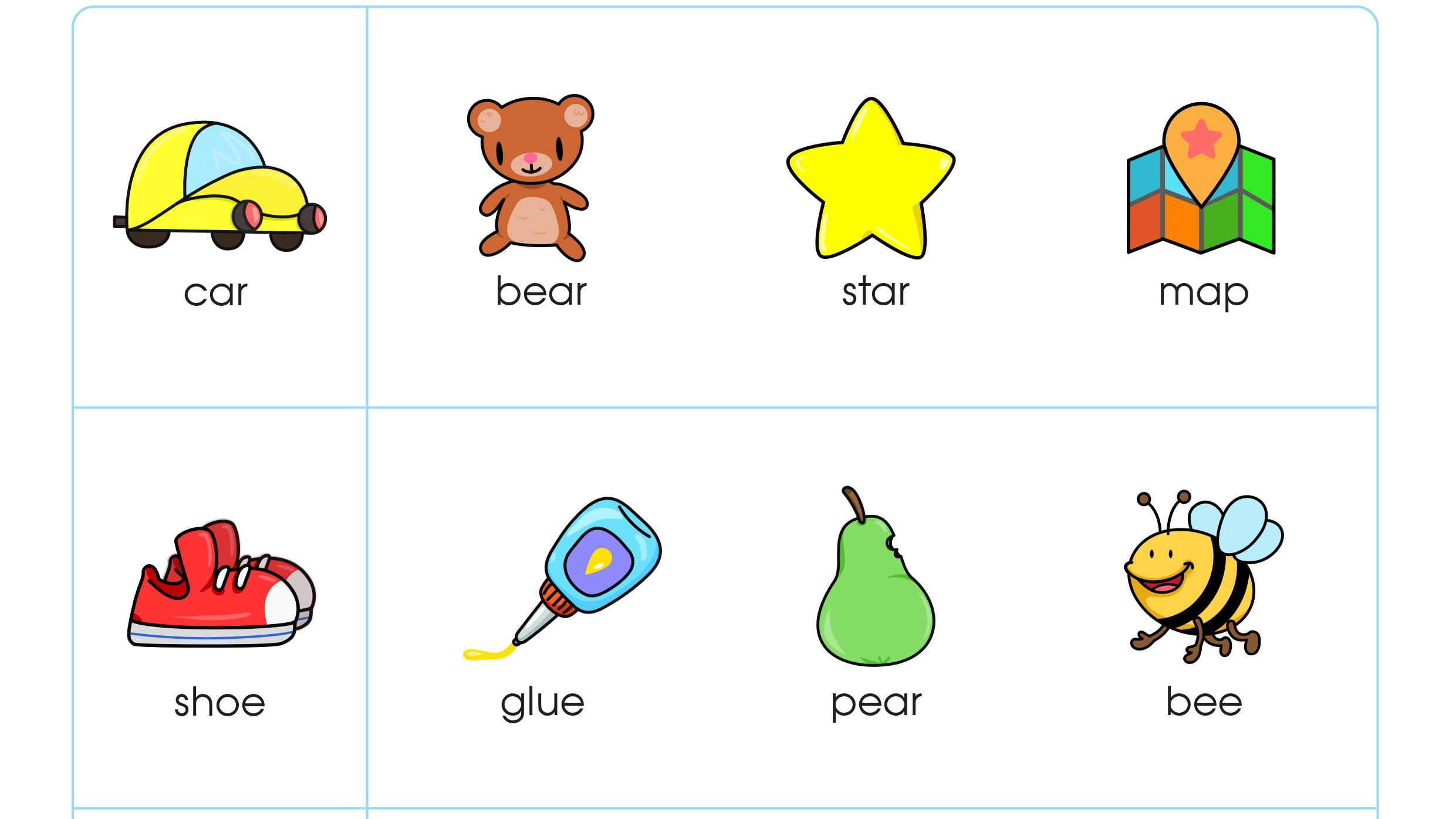Understanding prefixes Normal Worksheets for Ages 4-7
4 filtered results
-
From - To
Discover our engaging "Understanding Prefixes Normal Worksheets" specially designed for children aged 4-7. These worksheets help young learners grasp the concept of prefixes, enhancing their vocabulary and spelling skills in a fun and interactive way. Ideal for interactive learning, each worksheet incorporates colorful illustrations and simple exercises that make mastering prefixes enjoyable. As kids explore various prefixes and their meanings, they'll gain confidence in their reading abilities. Whether at home or in the classroom, these worksheets serve as an excellent resource for early literacy development. Start your child's journey to becoming a confident reader with our thoughtfully crafted activities!
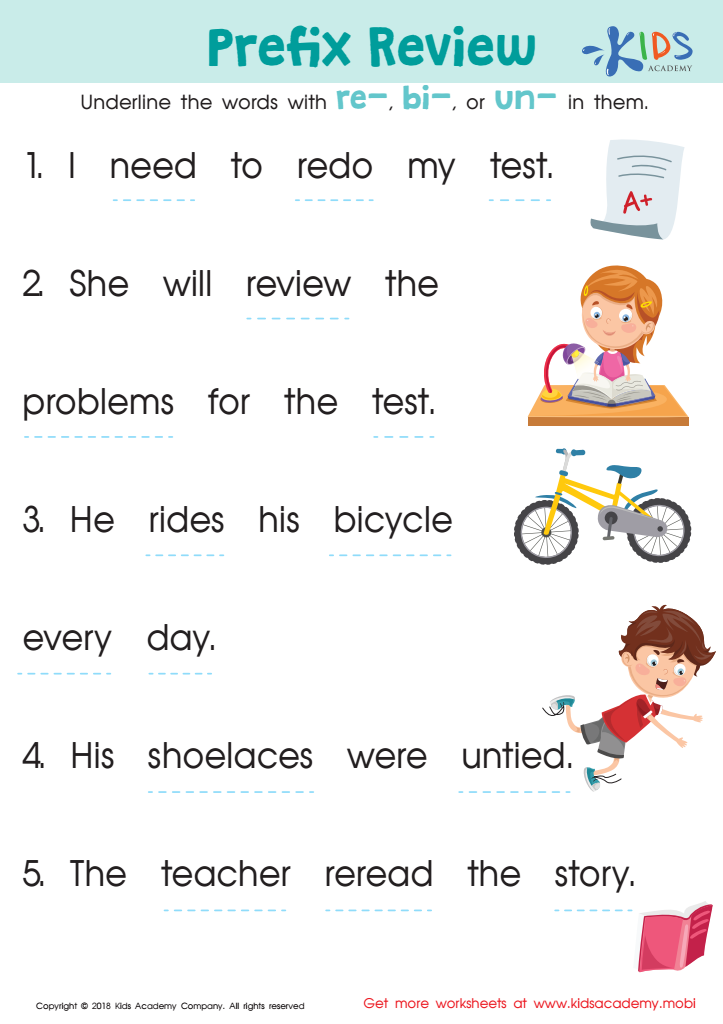

Prefix Review Worksheet
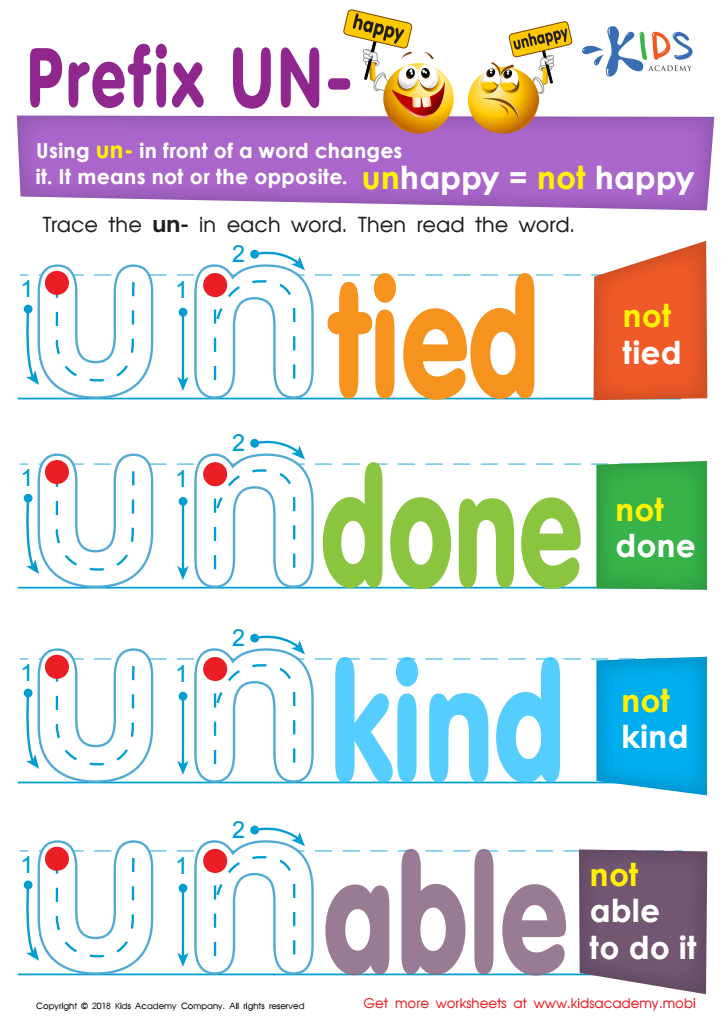

Prefix Un- Worksheet
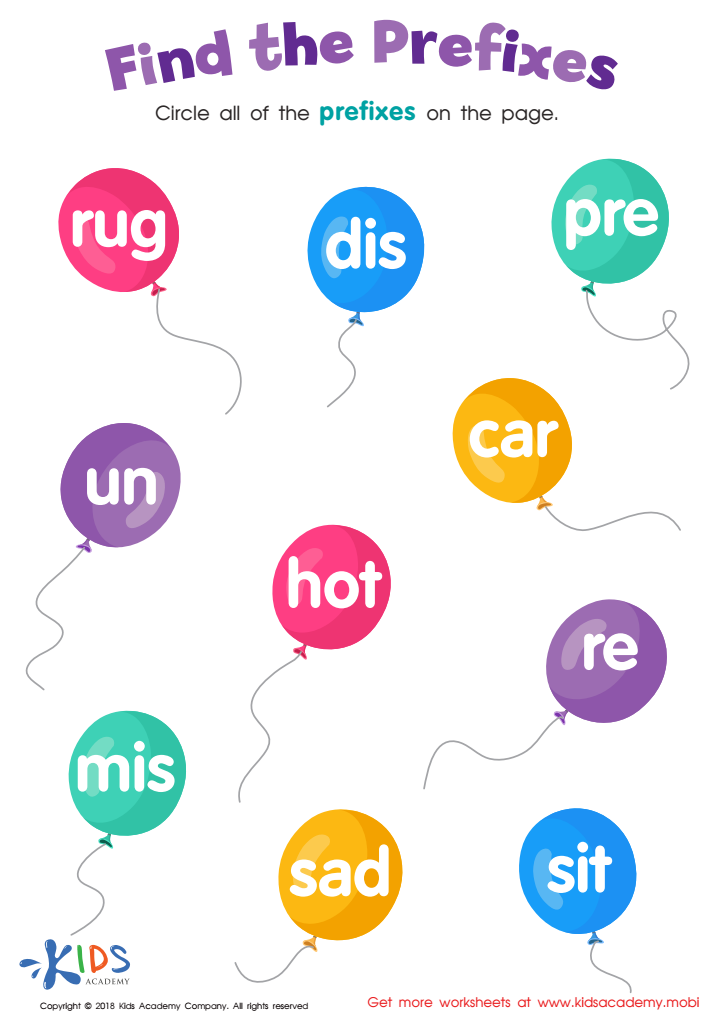

Reading: Find the Prefixes Worksheet
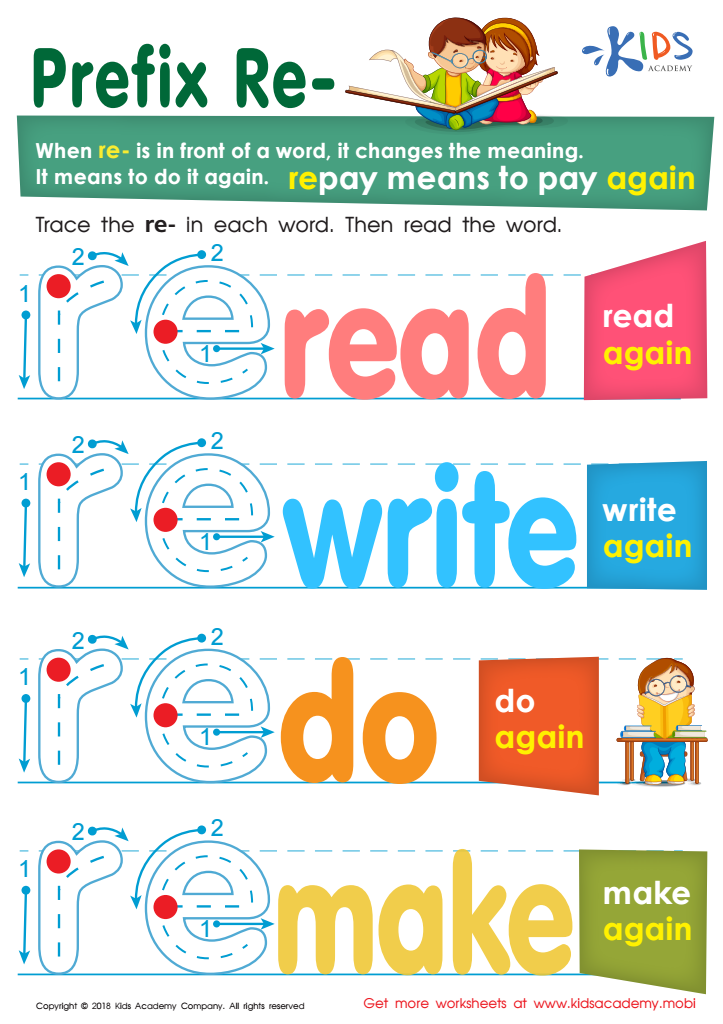

Prefix Re- Worksheet
Understanding prefixes is vital for children aged 4-7 as it lays the foundation for their reading and vocabulary development. Prefixes are beginning parts of words that alter their meanings, and introducing them early encourages language awareness. When children grasp how prefixes function, they become skilled at decoding unfamiliar words, boosting their reading confidence and comprehension.
For instance, knowing that “un-” means “not” can help a child understand “happy” versus “unhappy.” This skill not only aids in vocabulary building but also enhances their ability to express themselves more precisely. Teachers and parents can create engaging activities, such as prefix games or storytelling that incorporates prefixed words, making learning enjoyable.
Additionally, learning prefixes enhances critical thinking as children start to infer meanings of new words based on their prefixes. It promotes curiosity about language and encourages them to explore new vocabulary independently. By focusing on prefixes, parents and teachers are equipping children with essential literacy skills that will serve them all throughout their academic journey, making them more proficient readers and effective communicators. Ultimately, understanding prefixes nurtures a love for language that cannot be understated at such a formative age.
 Assign to My Students
Assign to My Students






